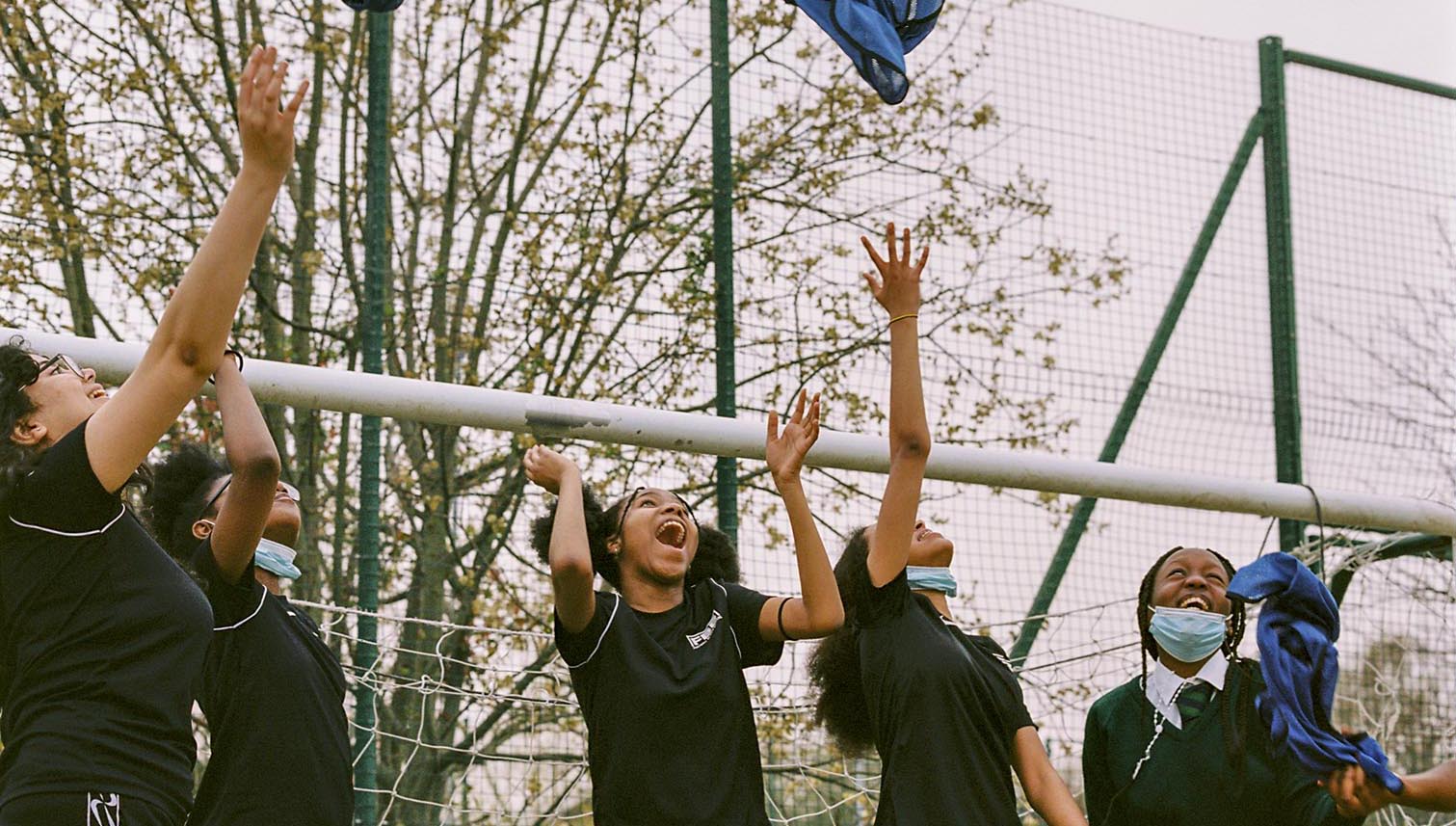
Words by Sarah Myers
Photography by Joseph Ironmonger and Football Beyond Borders
When university friends Jasper Kain and Jack Reynolds started offering football sessions on a south London estate for young people at risk of exclusion from school, they weren’t sure what to expect. But a group kept turning up and their behaviour improved.
Participants were offered a celebratory trip away if they completed the school year and achieved better grades – which they did. When the football sessions came to an end, their reactions were both upsetting and revealing.
“They basically said, ‘You’re snakes’,” explains Lee Parker, Head of External Relations at their charity Football Beyond Borders. “‘You come in, spend time with us, and then leave. You’re just like all the other adults in our lives.’”
The comment prompted Jack and Jasper to form Football Beyond Borders and set the charity a key goal: for all the vulnerable young people with which they work to have a trusted adult relationship to help them thrive. Football Beyond Borders works with young people from areas of socioeconomic disadvantage who are passionate about football but disengaged at school.
Without intervention and support, trauma from adverse childhood experiences can affect their education and be a barrier to forming healthy relationships long into adult life. “Ultimately, we’re there to make sure these young people at risk of exclusion from school aren’t excluded,” says Lee, “and they also have a trusted adult relationship with a Football Beyond Borders practitioner within the school, who can help them achieve English and Maths GCSEs and thrive in mainstream education.”
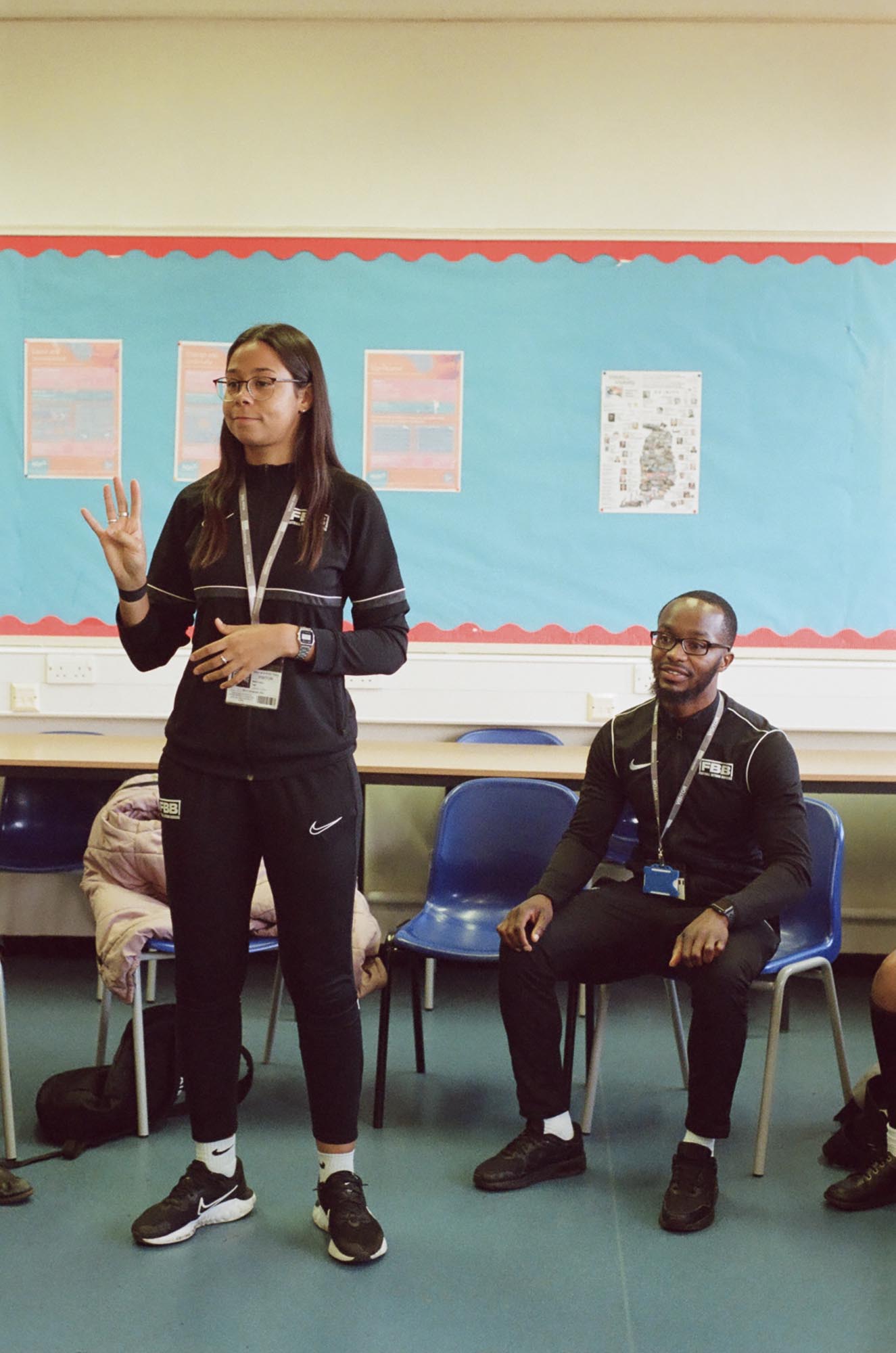 Football Beyond Borders practitioner
Football Beyond Borders practitioner
Social and emotional learning
Football Beyond Borders runs over 147 programmes with more than 2,000 young people in schools around England. While the football is still a hook, it’s only a part of what Football Beyond Borders does. “The football is a Trojan horse,” says Lee. “We use it to get young people into a space where they can, unapologetically, authentically become themselves. But the main crux of our work is within the classroom.”
Football Beyond Borders practitioners deliver a curriculum focusing on crucial social and emotional learning. The young people discuss issues like toxic masculinity, race and inequality. “Within those sessions they learn about empathy and how to relate better to other people in school and in their home life,” says Lee, and they have space to talk with our practitioners about their feelings and their emotions. Our practitioners are essentially therapists in tracksuits.”
The multi-year grant from the Leathersellers’ Foundation allows Football Beyond Borders to deliver core activities and invest in their team, several of whom were themselves supported by the charity when they were younger. Training includes upskilling practitioners to achieve degree-equivalent qualifications. “Our training is helping staff to be stronger practitioners and better-trusted adults within the schools that we work in,” says Lee. “It gives them space to reflect and share their challenges and learnings.” As a result, staff stay longer – at least three years – giving young people consistent support.
Out of all the young people on Football Beyond Borders programmes in the 2022–2023 academic year, 92% who were classed as at risk of being excluded ended up staying in school. In the same group, 43% achieved GCSEs in English and Maths, which was nine times more likely to occur than amongst those at risk of exclusion who weren’t on the programme.
“Football is a way of allowing me time to relax and sort everything that’s going on in my head,” says Paige, a Football Beyond Borders participant. “It’s a way for me to come out and say how I feel and express myself. Football Beyond Borders has given me that space to be confident with who I am and to then overcome all the other challenges that I face in life. I don’t think I could be the person I am without Football Beyond Borders.” Paige was predicted to fail her GCSEs before joining Football Beyond Borders, but she passed all her exams and got a 5 and a 6 in English and Maths.
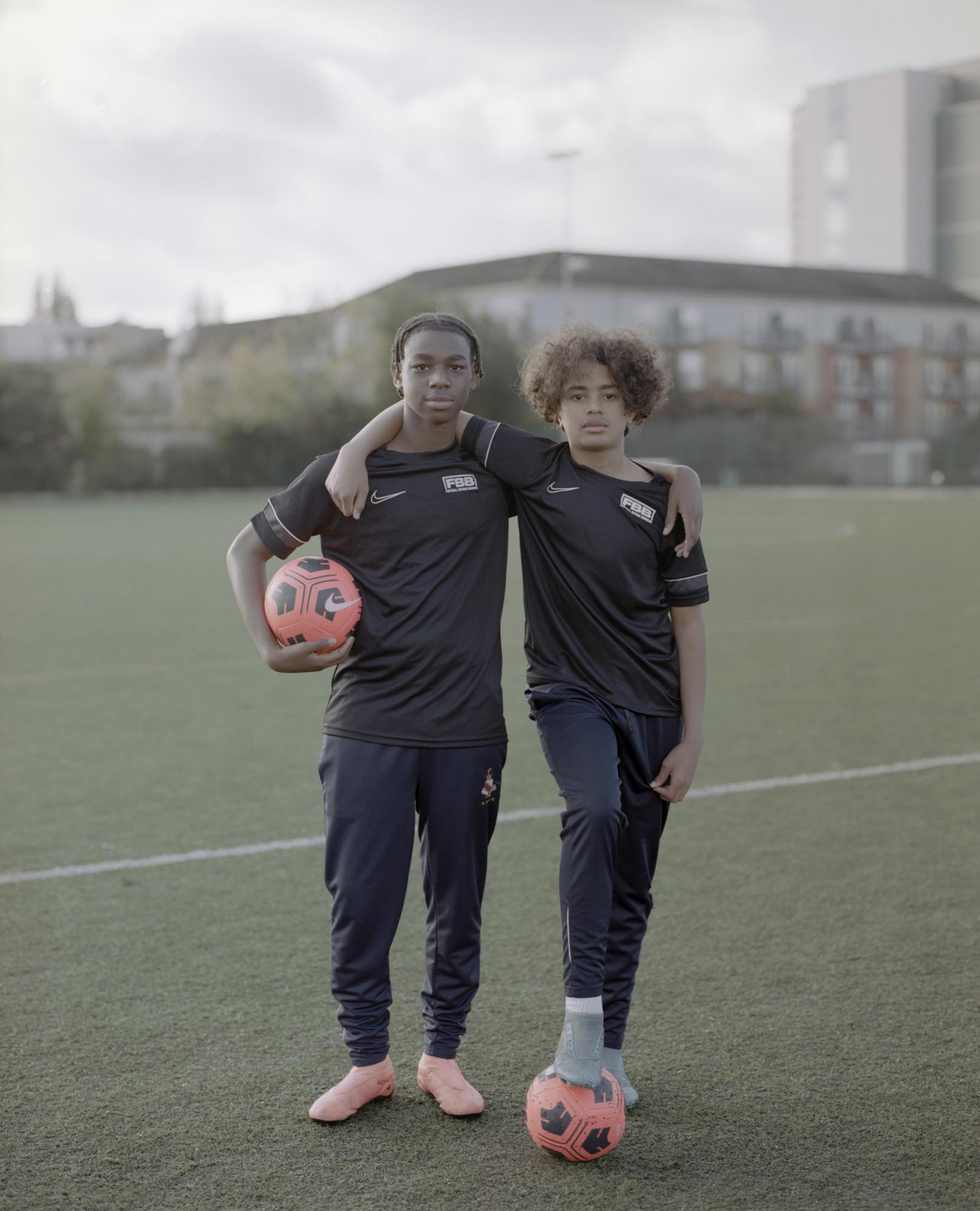
Leaving the comfort zone
Another organisation tapping into the universal power of the beautiful game is Football Journeys. This London-based charity brings together young people from different communities to share new experiences, find common ground and overcome stereotypes. They run a 16-week Youth Leadership Programme in schools, mainly with groups of Year 9s.
“Football Journeys takes young people outside their comfort zones,” says the charity’s Director, Carlos Salvador Joao. “It’s about allowing them to believe that they can be the leader – and the human – that they want to be.”
The programme involves participants visiting schools in different areas of London to build positive links with their peers. As well as taking part in inter-community football activities together, each group creates a film about their local area and shares it with the other. The films explore the identity of the school and the wider community of which they’re a part.
“Teachers have told us that our programme really supports the students to connect more with their identity within school,” says Carlos. “Students have said it’s helped them integrate into the school community, connect with their peers and appreciate their own local community more.”
Students also feel that the programme helps them to have more self-awareness. “They reflect on their own behaviours. This has facilitated better relationships with others. They say they feel more confident to join in with team activities, too.”
Football Journeys also helps to tackle the stereotypes that young people have about people and places that they’ve never been to. “They might have based their views on someone telling them ‘people in east London are like this’, or ‘people in south London are like that’,” says Carlos. “By the end of the programme they can see ‘Oh, they’re really just like us.’”
“When I heard we were going to Bermondsey in south London, I thought it would be a scary place, but it was actually just like where I live,” says one Football Journeys participant. “We have similarities despite being from different places. If I didn’t do Football Journeys, I would’ve been more closed off and reluctant to go to different places and meet different people.”
Carlos has recognised that doing something outside of the norm can have a big impact on young people with adverse childhood experiences. “Challenging themselves with things they haven’t had exposure to or done before gives them a new belief in themselves and what they are able to do.”
During the filmmaking, for example, a young person may begin by feeling shy and uncomfortable. They can challenge themselves to get in front of the camera, or ask a stranger on the street a question about the local area. “If they get a ‘no’, then they’re learning important life skills,” says Carlos. “Through dealing with setbacks, they’re learning resilience.”
“It’s about allowing them to believe that they can be the leader – and the human – that they want to be.”
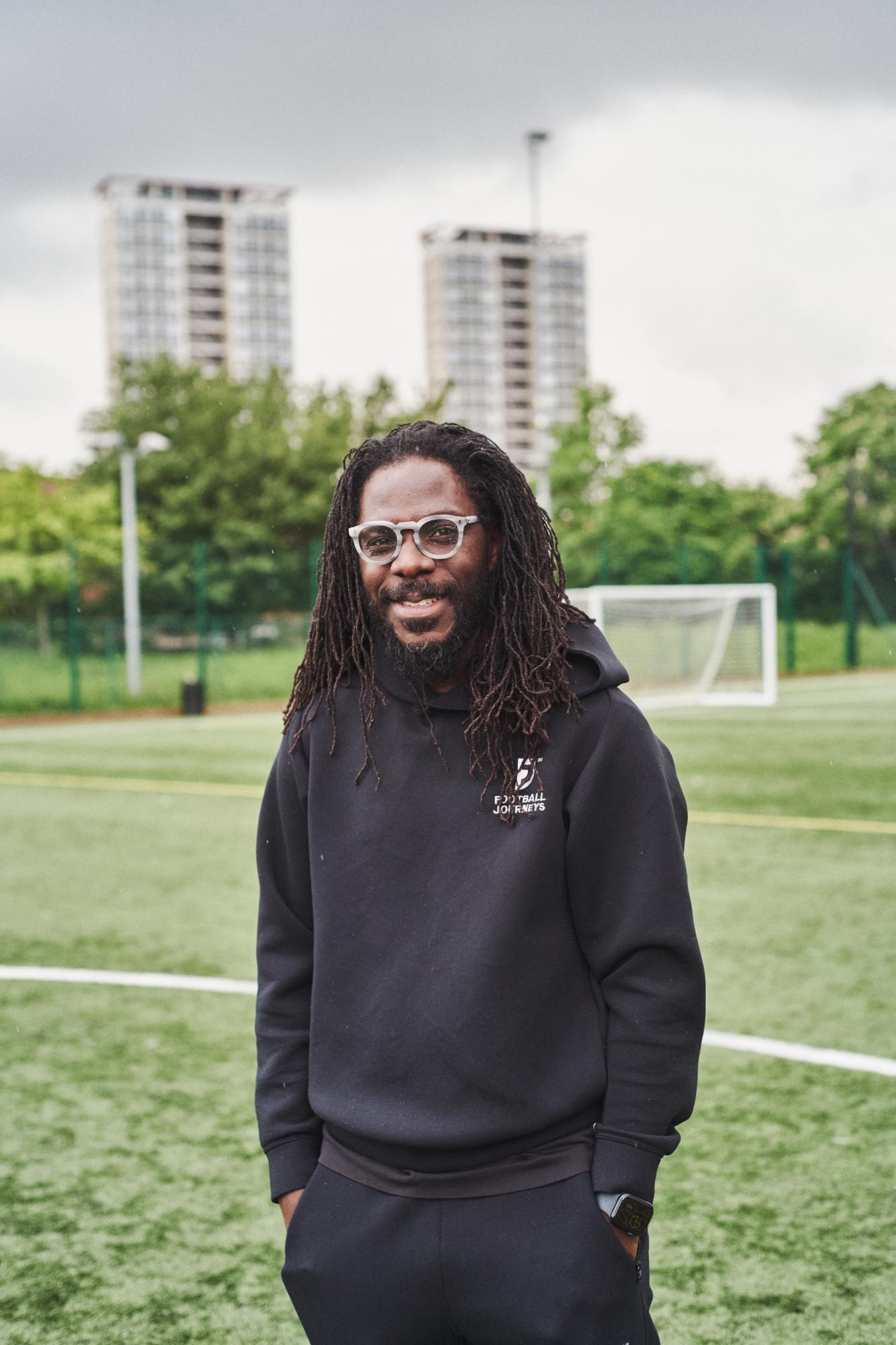 Carlos Salvador Joao, Director, Football Journeys
Carlos Salvador Joao, Director, Football Journeys
Football Journeys also offers an ambassador programme for 14–18-year-olds. The young people work together to come up with a structure for the programme, which includes leadership qualifications, skills for work sessions, and opportunities to learn about different industries and careers. “When we run a workshop around leadership in the City, for instance, we’re bringing young people into workplaces where they may not have people in their own family network,” says Carlos. “We’re continuing to challenge them out of their comfort zone. We open up their networks to opportunities they didn’t know existed.”
Carlos says that the Leathersellers’ Foundation grant has played a massive part in the charity’s short-term future, particularly following the challenges of Covid. Carlos also noted the added value that Football Journeys receives from Leathersellers as a grantee. Remarking on the Link and Learn event in March 2024, Carlos states that it was useful for information, networking and sharing ideas.
Breaking the cycle
Providing new experiences is also a key focus for Leathersellers’ grantee Solidarity Sports. This west London charity helps children aged 6–17 to heal from complex trauma through a range of programmes and activities. This includes sports, healthy eating, arts, educational trips, mentoring and holidays.
Around 95% of Solidarity Sports participants are referred by social services and come from extremely challenging backgrounds. Many have suffered neglect or physical, emotional or sexual abuse. They may be self-harming and have suicidal thoughts. Having started out as an after-school football club, the charity finds it’s ‘plugging the gaps’ where social services don’t have the resources.
“The adverse childhood experiences are so broad and vast,” says January Jones, Head of Operations at Solidarity Sports. “One of the biggest challenges we have is trying to address all of the young people’s needs.”
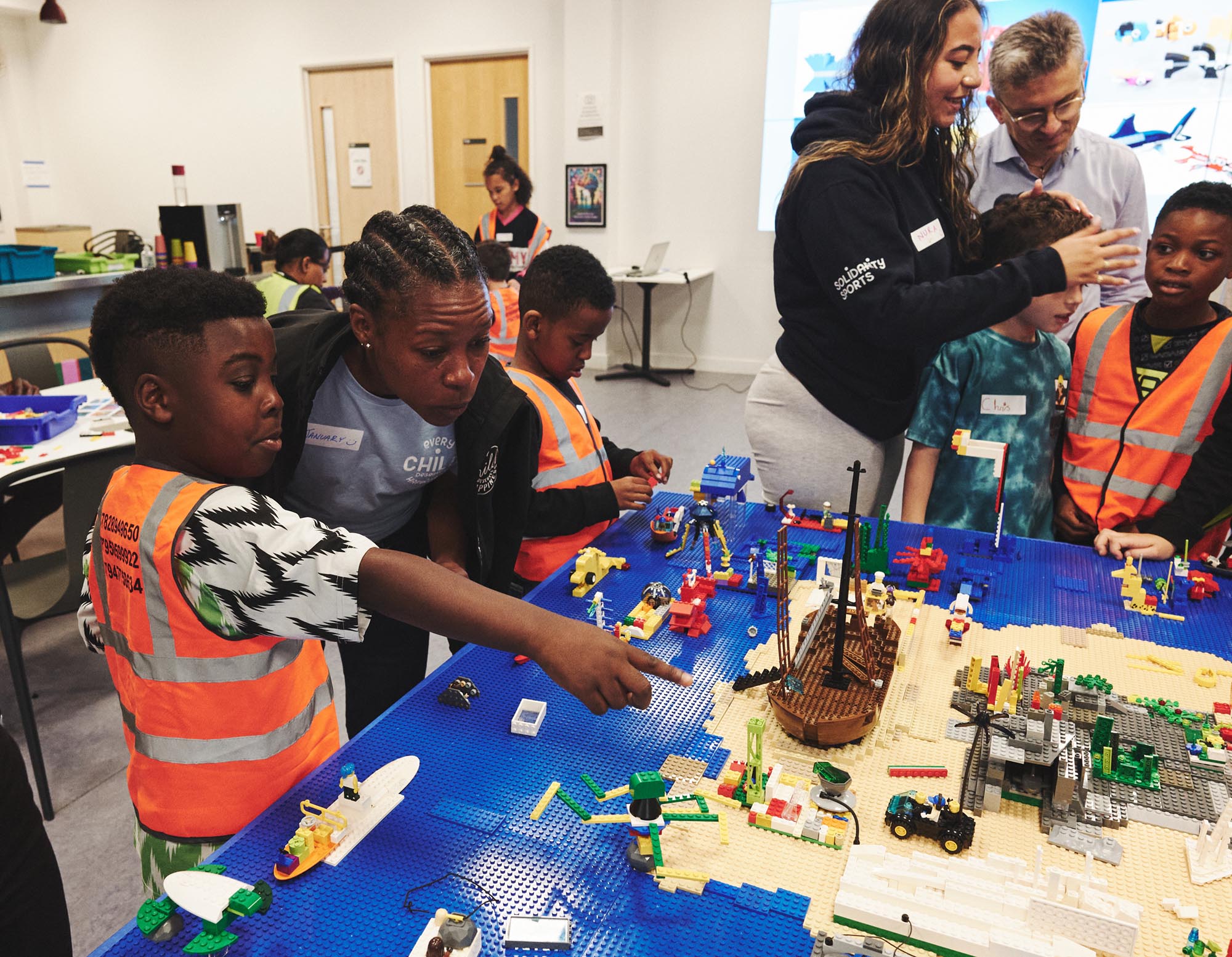 A Solidarity Sports creative session
A Solidarity Sports creative session
One way they do this is by harnessing the power of play. “It’s very liberating and freeing when you can shut your mind off and just focus on playing football, drawing a picture or being silly. It provides a little cocoon and a safe space to let go,” says January. “Every child deserves happiness. We want to provide happy memories, a place for them to have fun and try and forget their problems for a while.”
And they’re succeeding. Of the parents who responded to a survey, 100% said that their child was happier after joining Solidarity Sports. The charity also offers support for parents – with everything from the cost of living to mental health. “We provide the parents with whatever they need so that they can have a less chaotic household for their children.”
Receiving a Leathersellers’ Foundation grant helps Solidarity Sports to address the needs of the young people and parents with which it works. “Multi-year, unrestricted funding has given us some breathing space as an organisation, which is great because there is just so much to do,” says January. “It means we can focus on our aims and increase the number of children that we invite to each activity.”
The range of support that Solidarity Sports offers has the potential to change the future for generations of families. “Hopefully, what we’ll have is more resilient adults,” says January. “We’ll have adults with empathy, who understand what struggle is, and who want to help the next generation. Those adults will have less chaotic households so they won’t need us. As wonderful as Solidarity Sports is, it would be great if it wasn’t needed.”
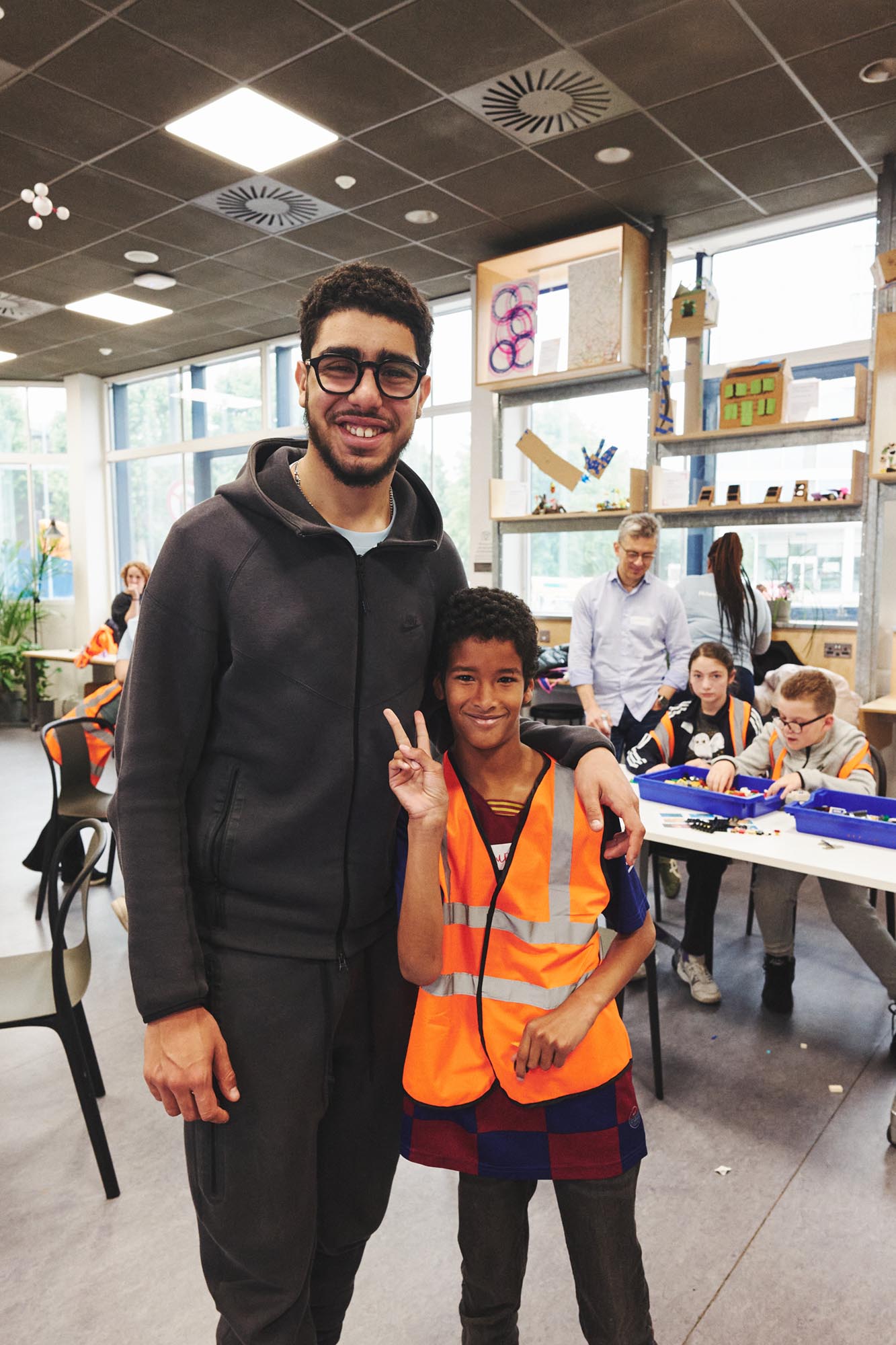 Ayoub El-Bakkali
Ayoub El-Bakkali
Ayoub El-Bakkali: Well-being coach at Solidarity Sports
When Ayoub El-Bakkali was six he took part in a Solidarity Sports holiday project. Now 22, he’s one of the charity’s group leaders and a wellbeing coach.
“I can remember my first day at Solidarity Sports. Everyone was very welcoming, and I loved every second of it. That was 2007. I carried on coming during all the school holidays. When I was a teenager, I became a helper and then started volunteering as soon as I was old enough.”
“A couple of years later, they offered me a job as a well-being coach. I was very shy at first. It was a new experience. But, with the whole team’s guidance, I worked my way to leading the Shepherd’s Bush group and running an afterschool club.”
“Solidarity Sports shaped my career. At school, I wasn’t the best student. I was an angry child and didn’t listen to adults. I’ll never forget one teacher saying to me, ‘You’ll never make it to university.’ It was Sean [Founder and CEO of Solidarity Sports] who gave me the confidence to try. He said to me: ‘There are going to be people out there in life who won’t believe you’ll succeed. You’ve got to prove them wrong.’”
“So then I just put my head down, started to ignore my friends and listened to the teachers. I went on to do Educational Studies at university. It’s helped me understand the power of play. The activities we do at Solidarity Sports are fun, but they are not just for fun – we do team-building games and games that work the mind. When we have some downtime with the children, for example, if we’re waiting for a bus, we might doa quick quiz – something just to make their brains tick.”
“It’s good to watch the children develop and gain confidence. I remember one girl who joined us and would hardly speak. She was very shy and reserved. One of our mentors worked with her for six months, and finally, she started to open up. She went from not talking at all to not wanting to stop! It’s lovely because I’m seeing children grow, gain confidence, and express themselves.”
“Solidarity Sports is like a big family. We all have the same ethos – no matter where you’re from or how old you are, everyone is treated equally. We work with children who have been through extreme trauma. And some of them lash out. That’s hurt and pain from inside coming out. Most of our children are referred to us from social services. One child lost their family in Grenfell, another child’s family are asylum seekers, and others have experienced domestic violence. So many children in this country are being neglected – a lot of it goes under the radar.”
“What support we give depends on the individual family’s situation. We have two children in our group whose parents are both disabled. In that case, we support them by sending a trusted volunteer or staff member to pick up their child every day and bring them to us. Sometimes parents just want someone to talk to, who’ll listen to them and understand.” “I had a parent call me just this week and say: ‘Thank you so much. You don’t know what it means that you’re taking my daughter out and creating memories with her.’
Our Solidarity Sports t-shirts say ‘Every Child Deserves Happiness.’ I really believe that. It’s very rewarding to be part of it.”
READ MORE

Dream Maker
In her sleep, Frances Pinnock finds inspiration for her figurative leather sculptures.
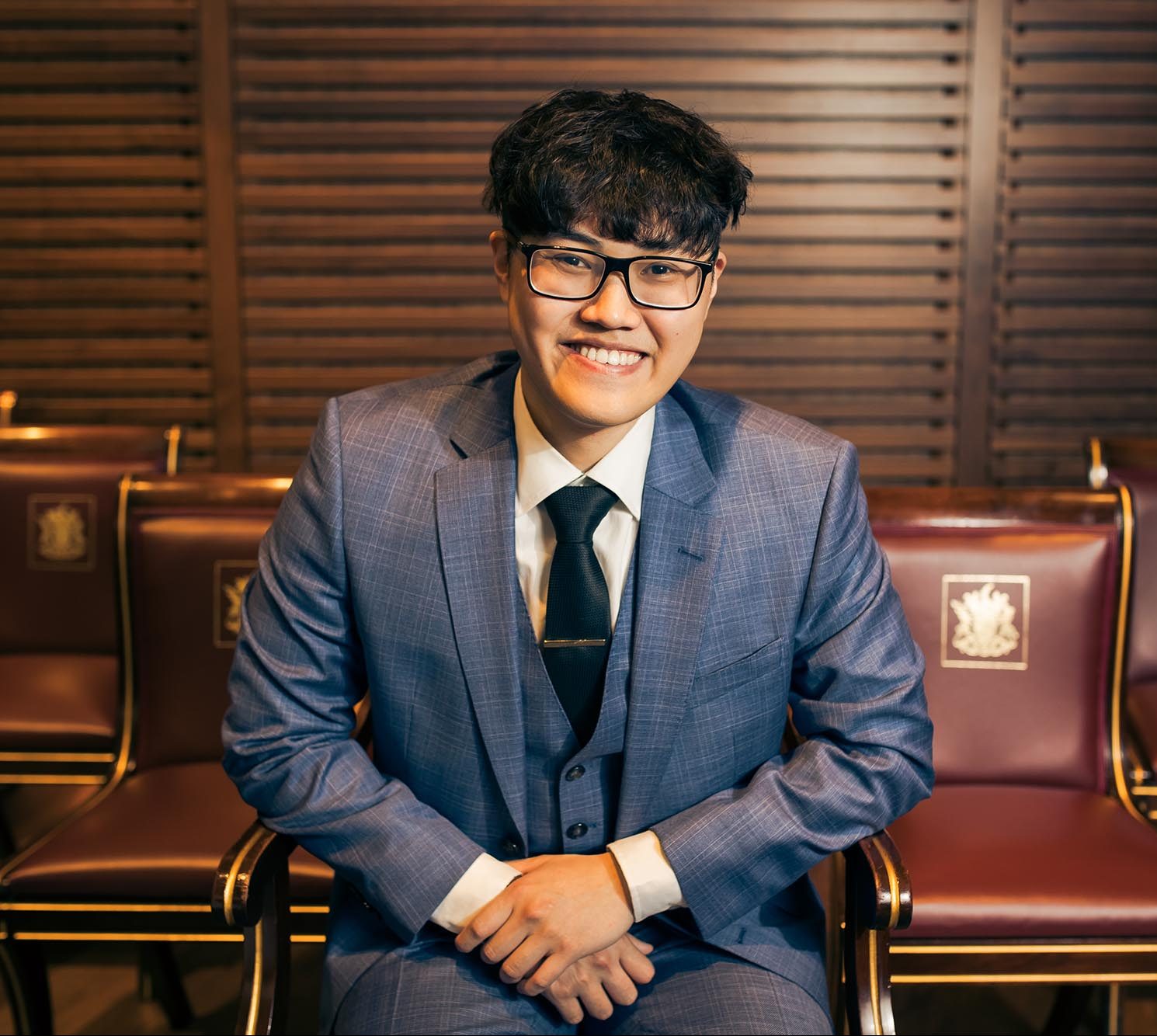
Leathersellers’ Scholarships at Colfe's School
Celebrating the long-term success of the Leathersellers’ Scholarships at Colfe’s School.

Fashioning History
For an inspired project at Leicester’s De Montfort University, students of “Artifacts Live” are drawing on the lessons of historic leathercraft to create the designs of the future.